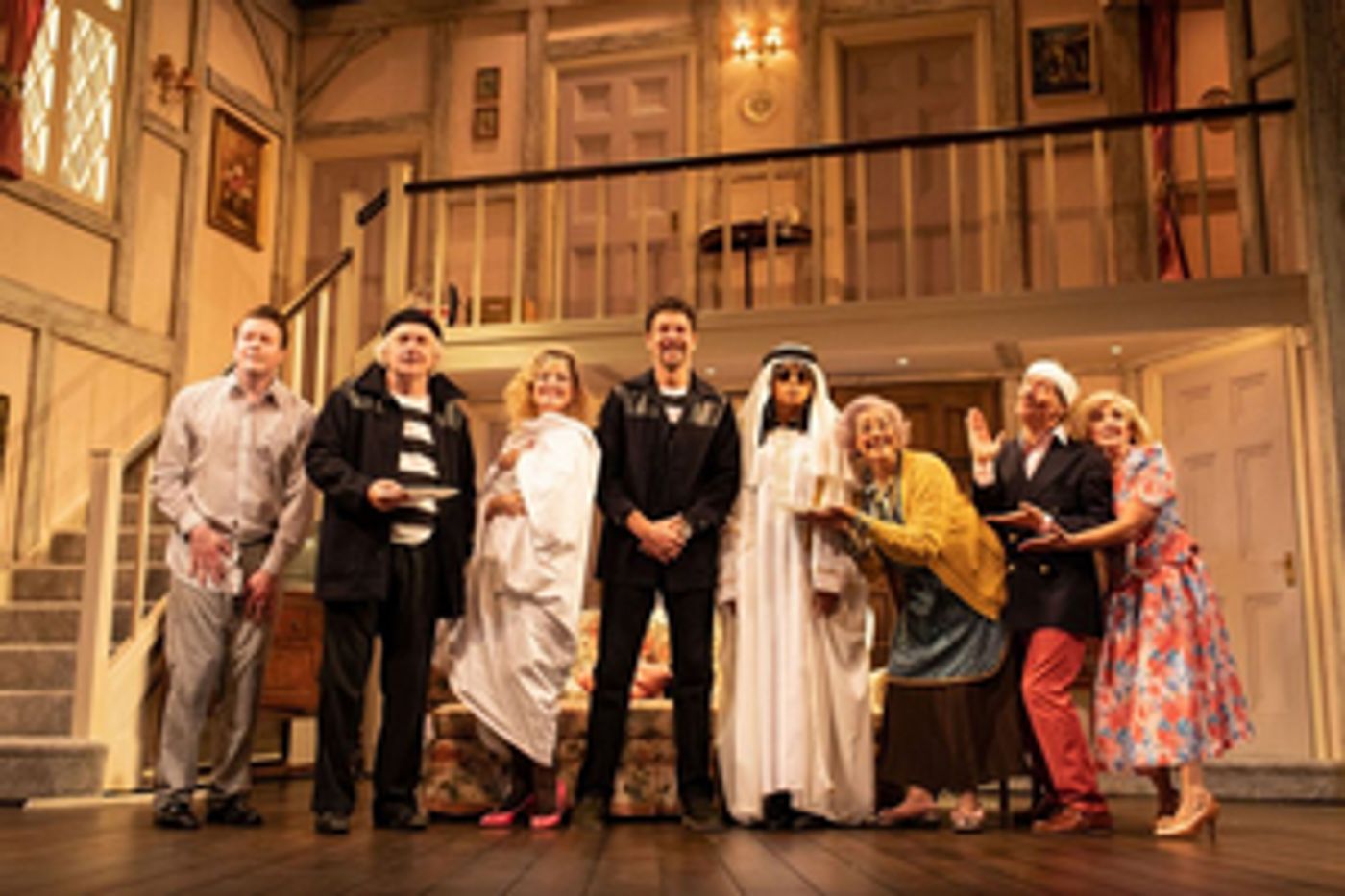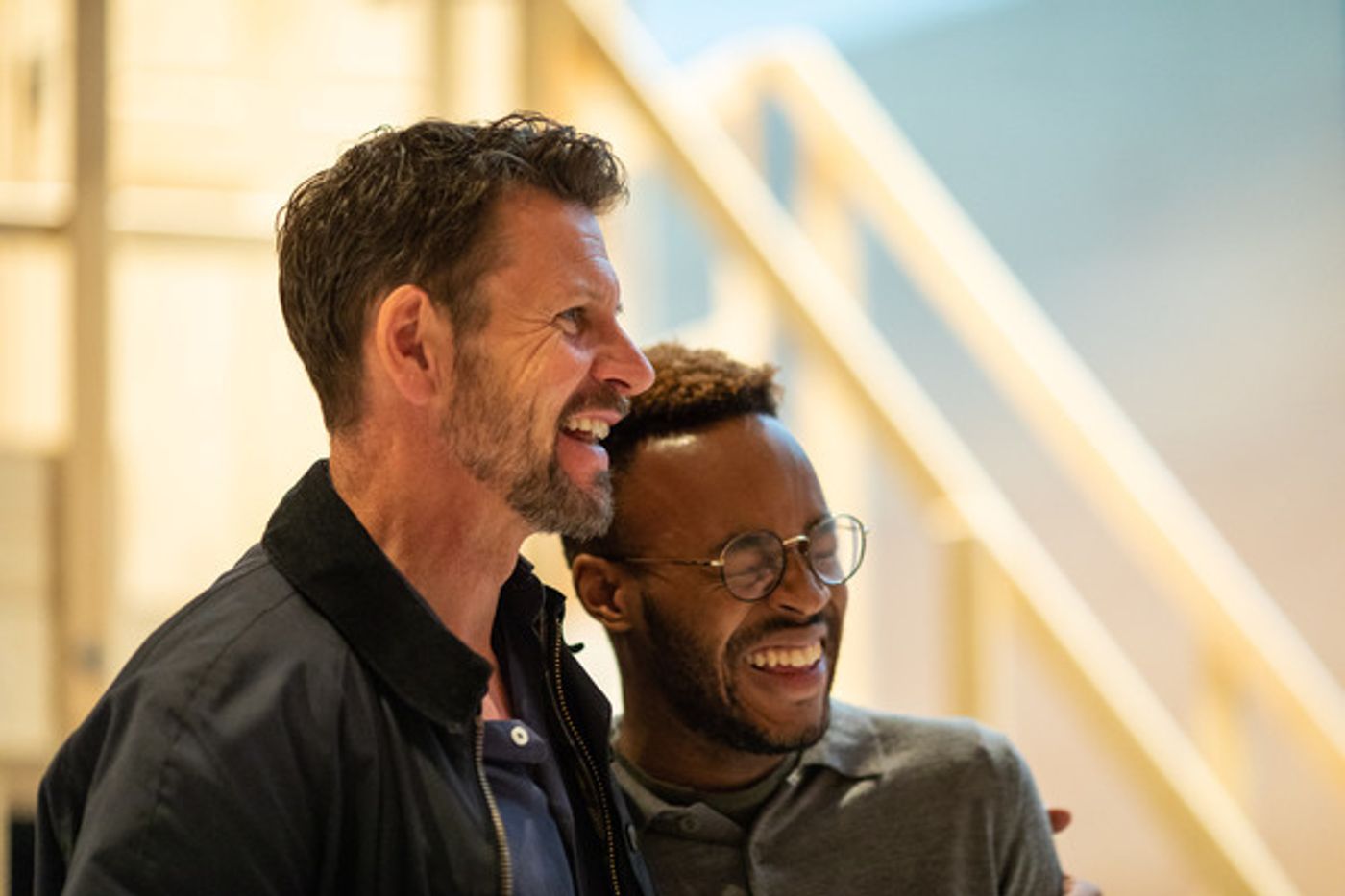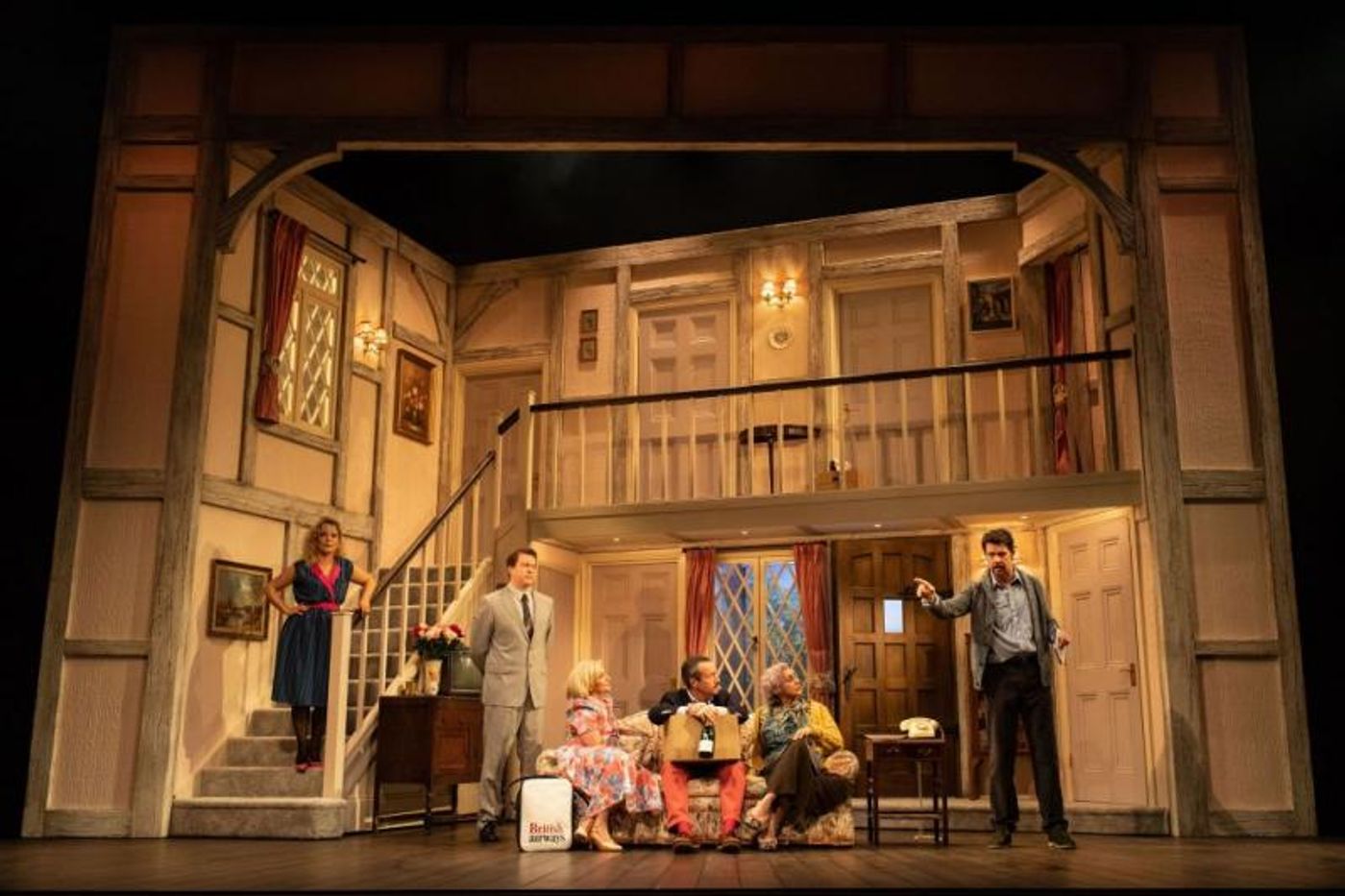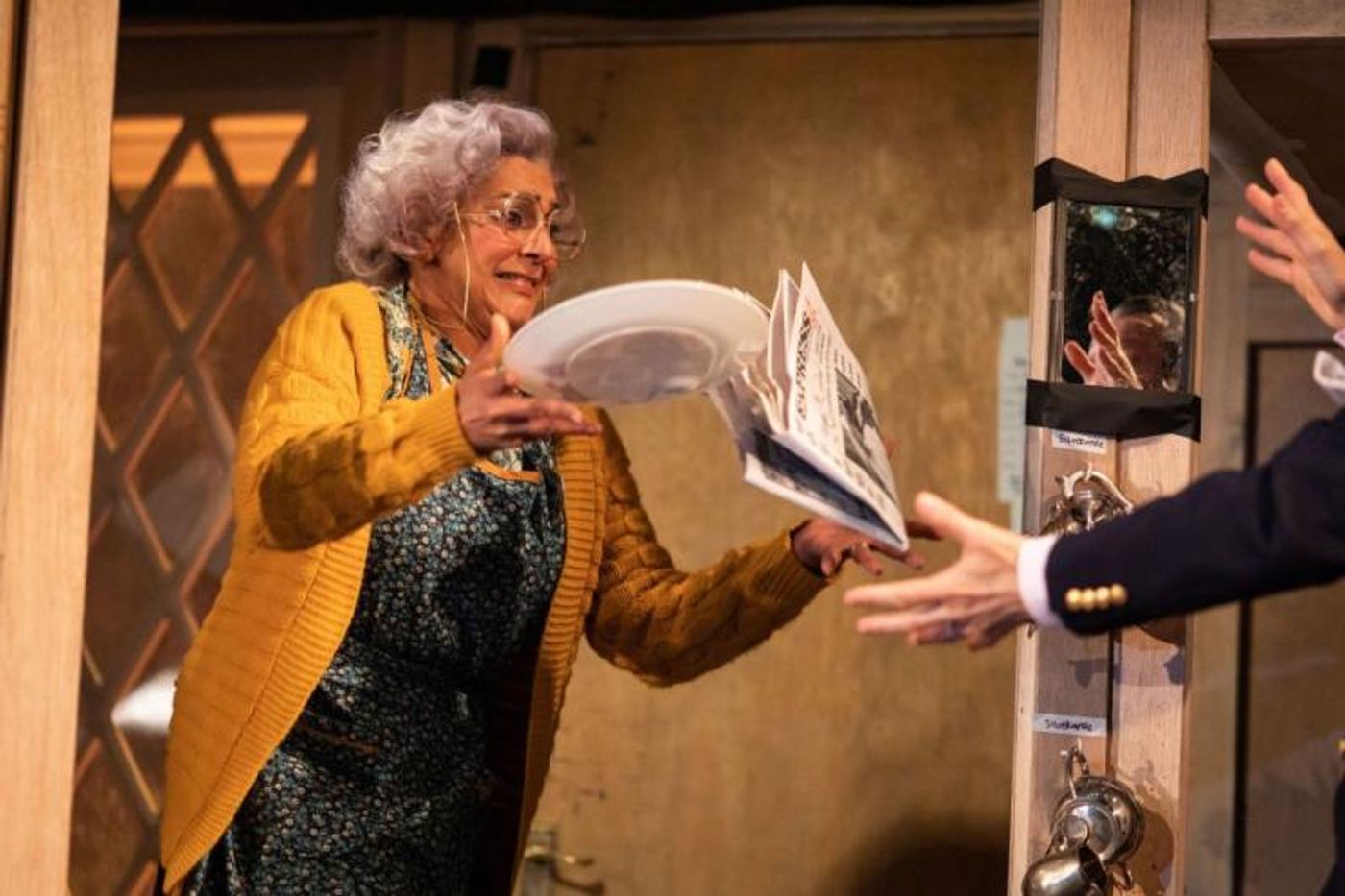Interview: Lloyd Owen Talks NOISES OFF at the Garrick Theatre

Noises Off is Michael Frayn's peerless farce/love letter to the unpredictability of theatre. After a run at Lyric Hammersmith, where the play debuted in 1982, Jeremy Herrin's revival is transferring to the Garrick Theatre.
On press night for the Lyric production, the show had to pause because of technical difficulties. BroadwayWorld catches up with actor Lloyd Owen about what it's like to act in something where art, quite literally, imitates life.
How did you get into being an actor?
I went to RADA when I was 18 - I had been part of the National Youth Theatre before that and I joined the RSC after training.
My first production was at a rep company in Ipswich in As You Like It. That was my first experience of living in digs! Then I joined a theatre group called Cheek by Jowl: we went to 30 countries in three years.
Can you tell us about Noises Off?
It's based within the tradition of British sex farce: a staple of British theatre since the turn of the century. Ray Cooney was one of the most famous figures of farce, and Brian Rix.
Then, in the Eighties, Michael Frayn created this meta farce - a farce-within-a-farce, and I don't think it's too extreme to say it's the funniest play ever written. The audience is beside themselves laughing by the time the third act comes along. It's like a collective hysteria: it's the most wonderful sound hearing people losing their minds to laughter.

in rehearsals for Noises Off
It gives a glimpse of some of the 'crazy' that we all, in the industry, have gone through to get productions on. When I was at the rep company in Ipswich that I mentioned, we had two weeks only of rehearsals. You'd be doing one play at night whilst learning the next during the day!
Who do you play?
I play Lloyd Dallas, who is the director. I think a lot of actors over the years have been subjected to particular directors... They hold a very powerful position in the rehearsal room.
If they're good, it's an amazing experience and they are wonderful beings, and great creatives, who can shape a show. If they're bad, it can be the worst four weeks of your life locked in a room with them.
Had you seen a production of it before?
I saw the production when I was about 14. My mum took me: I remember the director role, particularly. I found it shocking, and memorable, that he begins in the auditorium. It was the first time that I remember involuntarily rocking forward because I was laughing so uncontrollably.
I've always wanted to be in it. I've done a Michael Frayn play, Clouds, before and he joked then that he wrote the character [in Noises Off] with me in mind, because I happen to share the same name as the director!
Has Michael been involved in these rehearsals?
Yes! He's been so helpful. It's always a bit of a magic moment when you get a writer of great plays in the room. A real privilege.
I've had it before, working with Edward Albee, who wrote Who's Afraid of Virginia Woolf?. It's amazing because you can ask the 'source' the questions you've had in your head.
To have Edward in the room was quite extraordinary. How magical. To be near that level of talent and creativity. Most of the time it comes with a lot of humility, which is often surprising. They have nothing to prove.
Michael, too, is a very humble man: he leaves the actors and director to their process. I think he really admires actors, and what it takes to perform.

Are the audiences still getting the play's references, or has anything been reworked to make it more contemporary?
Jeremy [Herrin, the director] and the designer, Max Jones, decided to set it in the 1980s to pin the play to that period. As actors, we love the play because it is still quite true to life. Michael structured the show as a play-within-a-play, and even that, as a standard sex farce, is funny on its own!
You understand the difficulties of them trying to put the play on. You relate to, and fall in love with, the characters and their vulnerabilities. It's about the secretive world of theatre and Michael gives you the privilege of seeing backstage.
Do you think more farce should be revived?
I don't know... a sex farce puts women in a very difficult position. However, farce, generally, yes. New farces are written with a lot more of our feel for our time.
As Michael's play is set in the 1980s, there's an element of fun to that, but you don't sit there feeling that it's an old play being revived. It feels eternal in that sense. The situation happens to be theatre: people under stress, people having affairs and falling out. It's very particular.
How was the rehearsal period this time? Was there a lot of laughter?
I spoke to Michael yesterday and told him if he ever writes a preface to insist that producers need to allow six weeks to rehearse: four never felt enough!
There was the double hysteria of us being in the same situations as the actors, in a right old panic. But now, as many of us were in the production at the Lyric, we already know the structure, so there's been more time to play.
We've had a really good time in rehearsal and, hopefully, that will be reflected in the show. The original cast feels lucky to get back in the rehearsal room. Each of the new actors brings their own eccentricity and something new. So, we're all adapting, and finding new jokes, and new humour and interactions.
How do fine-tune a play that is so fast-paced?
Part of the actor's process is also having to figure out why you're doing things. An audience suspends their belief, so my job is to make sure I feel it's that it looks real. That process is actually dealt with in the play: characters asking the director why, exactly, am I going out of the door with a box a bag of groceries and he's like... "I don't know!".
With this play, there's a firm structure, which you find in farce, and everything has its own rhythm and humour. So, there's a lot of practising! Then you do find your own spin on it. You do have to get the skeleton of it right first. Those rigid parameters are quite freeing, because once you find them you can play around.

Have you all given your characters backstories to help the process along?
Certainly: that comes with experience, of having worked with different directors over the years. There's a story within the play about Lloyd, the Assistant Stage Manager and one of the actors, for example, where we've had to work out that backstory so we all have a similar narrative.
How was it on press night when you had actual technical difficulties?
I mean, you couldn't write it, could you? When our Company Manager stepped out in her blacks, she got a massive laugh. Everyone thought it was just part of the act. Of all plays!
It's live, baby, you can't edit that out...
Jeremy Herrin has recently directed some acclaimed dramatic texts [Wolf Hall, Labour of Love, This House, to name a few]: what is his approach to comedy?
I really wanted to work with Jeremy: I saw People, Places & Things [by Duncan Mcmillan, which was at the National Theatre and Wyndham's in 2015/16] and was very keen to work with him. He is a wonderful, very relaxed, director.
He is smart and witty, with funny bones, and he is great to be around. We laughed a lot in rehearsals because he kept us so entertained.
He's directed the play before at the Roundabout in New York, so that's great because you know he knows what the pitfalls are, and you can trust his experience. I've had a really good time with him.
Why do you think people should see Noises Off?
My dad used to say, on the odd occasion he would have a right old laugh, "Oh, it's a tonic, isn't it?". And laughter is a tonic.
If you want a release, to feel the endorphin effect of laughing out loud and the collective feeling of laughing, that is the magic of theatre. I can't recommend it enough.
Noises Off is at the Garrick Theatre until 4 January, 2020
Photo credit: Helen Maybanks
Powered by
|
Videos

